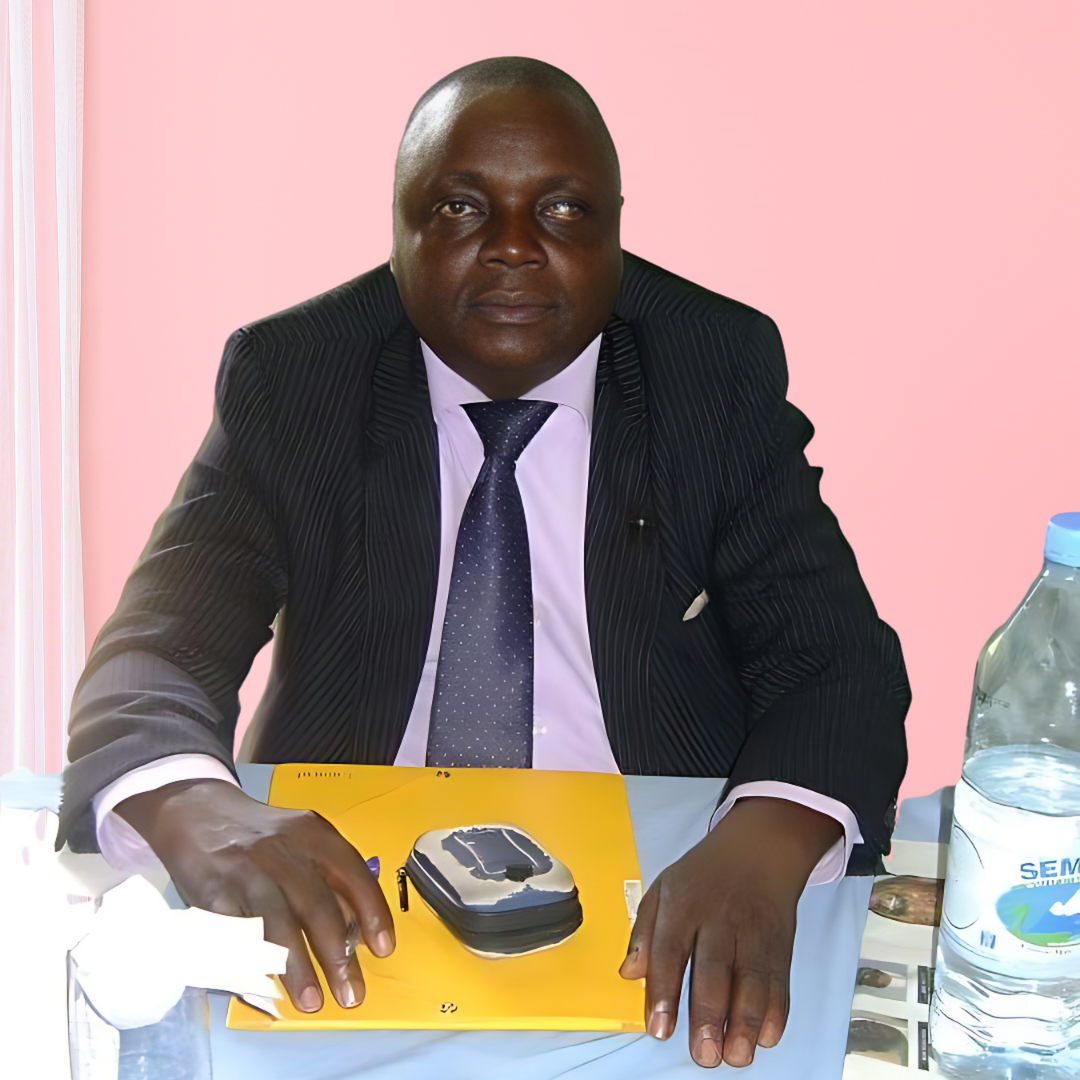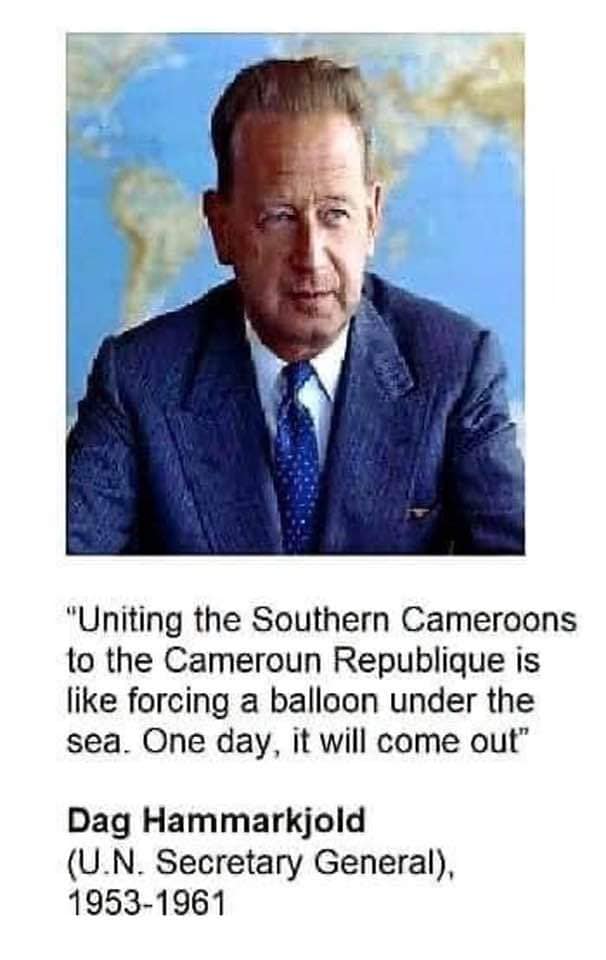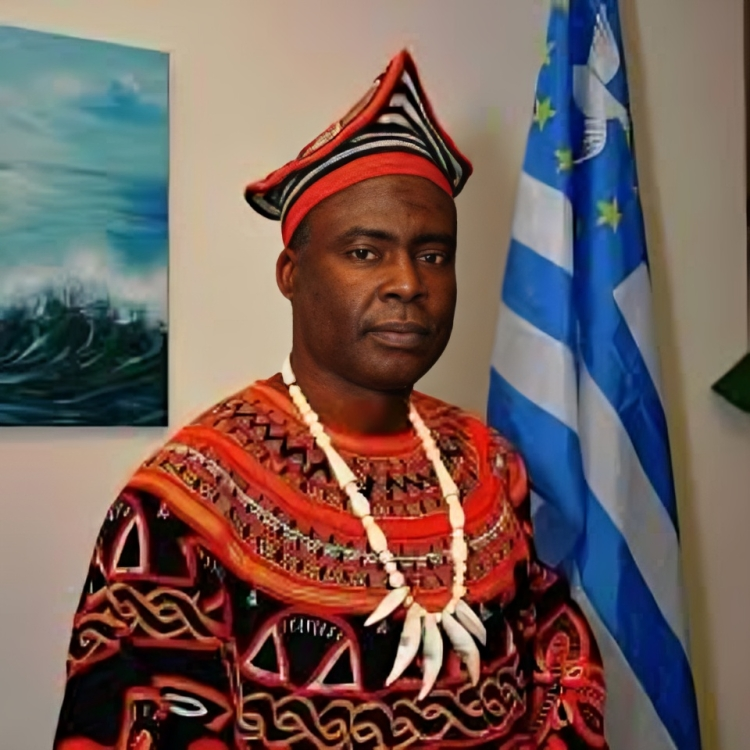The Anglophone Crisis in Cameroon is not merely a story of political disagreement; it is a saga of identity, alienation, and the complexity of resistance.
For eight years, this crisis has torn apart communities, disrupted lives, and transformed identities, often in inexplicable ways.
To begin mending these fractures, Cameroon needs a rare and powerful virtue:courage Courage to embrace diverse perspectives, courage to address uncomfortable truths, and courage to reform governance in a way that respects the unique historical and cultural identity of the, Yes, so-called Anglophone regions.
Re-Understanding the Roots of the Crisis: Perceptions of Identity and Alienation
At its core, the Anglophone Crisis is about perceptions of identity.
Historically, Southern Cameroons operated under an Anglo-Saxon system of governance with distinct administrative, educational, and legal frameworks.
Reunification with La République du Cameroun was laden with hope but came with a gradual erosion of this identity.
Centralized administration, dominated by Francophone – type officialdom and French-language documentation, amongst other facets, have been perceived as an attempt at assimilation rather than integration.
This has created a perception and sense of alienation among Anglophones, who often feel like a “conquered, occupied people.”
The systemic and perceived exclusion of Anglophones from meaningful and influential participation in governance—exemplified by the growing absence and marginalization of the characteristic free-thinking Anglophone intelligentsia in official national discourse—further deepens this divide.
The reliance on repressive, militaro-administrative solutions and the suppression, even trivialization of grassroots governance systems and perspectives have compounded this mistrust and sense of alienation.
Lessons from history tell us that perceived identity crises, when left unresolved, only deepen over time, creating fertile ground for exploitation by opportunistic, even nefarious actors.
The Rise and Impact of Mediocrity in Centralized Governance
Centralized governance by political clientelism, by appointments and perceived subjectivity in Cameroon has exacerbated the crisis by prioritizing loyalty and conformity over competence and vision.
Mediocrity, preferred for its amenability to repressive styles of administration, has replaced the meritocracy needed to tackle complex challenges.
This dynamic has stifled innovation and bold accountability, fueling frustration among Anglophones and many other Cameroonians, and perpetuating the cycle of resentment and instinctive resistance.
The crisis has not only alienated many Anglophones but has also compromised the quality of governance for all Cameroonians.
Fear of losing positions, coupled with a survival-driven mentality, has silenced voices that could have otherwise championed justice, equity, and inclusion for all.
The retreat and resulting paucity of courageous leadership, willing to confront the truths about Cameroon’s fractured identity has prolonged the crisis and deepened its impacts.
Lessons from History: The Role of Representative Governance
History offers compelling examples of how representative and inclusive governance can heal identity-based crises- even perceived ones.
South Africa’s post-apartheid reconciliation, led by figures like Nelson Mandela, demonstrated the power of dialogue and inclusivity in fostering national unity.
Similarly, Rwanda’s emphasis on community-driven governance after the genocide highlighted the importance of grassroots solutions in overcoming identity-based conflicts of perception.
Cameroon can, and must draw from these lessons to address its own crisis.
Allowing alternative diverse, legitimate, Anglophone and other viewpoints to emerge and prosper, even when they challenge or contradict official government positions, is crucial – this is a healing process – in extra-ordinary times.
Such perspectives can serve as transitional viewpoints that moderate extreme positions and pave the way for genuine dialogue and more sustainable solutions.
A Call to Action: Courage to Heal
Enduring peace in Cameroon requires a courageous departure from the status quo.
This means fostering an environment where dissenting Anglophone and other voices can be heard without fear of stigmatization.
It means embracing representative governance that values competence over conformity and empowers communities to take charge of their own development.
Cameroon must also confront the uncomfortable truths about its centralized governance system.
The overbearing French-style administration, which suppresses grassroots solutions and silences moderate voices, must be reformed.
By prioritizing local governance and decentralization, Cameroon can begin to rebuild trust and address the underlying causes of the so-called Anglophone Crisis.
The Broader Implications of A Perceived Identity Crises
Identity crises – the reality or its perception, are not unique to Cameroon; they are universal phenomena that have divided societies across history.
Whether rooted in colonial legacies or authentic African identities, these crises can separate people and allow social and economic factors to sustain those divisions.
Addressing such crises requires awareness of them, and courage, not only from governments but also from individuals and communities.
It demands a willingness to confront historical injustices; real and perceived, acknowledge diverse root identities, and build inclusive systems that reflect the aspirations of all citizens.
The Super-human Courage of Trust: a-priori to transformational change
Allowing Anglophone Leadership as a Pathway to Genuine Integration is a 1000 pound gorilla that Cameroon as a society must enable.
One of the boldest and most courageous steps the Government of Cameroon can take to address the Anglophone Crisis is to intentionally and visibly trust Anglophone leadership in top administrative and military roles in the South West and North West regions.linked directly to resolving the Crises.
Such a move would not only signify a profound shift in strategy but also act as a testament that integration is voluntary and rooted in mutual respect, not enforced through domination or assimilation.
A Bold Gesture of Trust – a precursor to real “living together”
The current perception among many Anglophones is that the dominance of Francophone officials in their regions represents an ongoing attempt at unwitting or unintentional re-colonization—evident in language use, militaro-administrative practices, and leadership styles.
By allowing qualified Anglophones to lead these regions at the highest levels, the Government would send a powerful message: that the State trusts the Anglophone population as equal partners in governance.
This action would affirm that Anglophone identity and leadership are not threats to national unity but essential components of it.
Preparing the Nation for Bold Change
Such a move will undoubtedly face resistance. Some may see it as a retreat of “strong central Governance” or even capitulation and enabling separatism; while some in the Anglophone population might in the short-term, accuse the Anglophone leaders of serving a distant master or as “enablers” – a sad terminology that has emerged with the fratricidal Crisis.
To counter these narratives, this strategy must be boldly, carefully and transparently communicated. The Government must frame it not as a test or trap for Anglophones, but as an intentional effort to correct historical grievances and foster genuine integration.
Such messaging should emphasize:
- Recognition of Historical Context
: Acknowledge that the alternative—domination by so-called Francophone officials—has been perceived as colonization and alienation.
- Voluntary Integration:
Reinforce the idea that true unity is built on respect, trust, and voluntary cooperation, not coercion.
- Loyalty to Local Governance
: Clearly outline that Anglophone leaders’ primary loyalty will be to the people they serve, ensuring that local needs, voices, and identities are prioritized within a broader national framework.
- Competence Over Tokenism:
Highlight that these appointments/elections are based on merit and competence, not token gestures, and that these leaders are empowered to bring meaningful change.
Educating Leadership for Success
To make this strategy successful, it is essential to prepare Anglophone leaders for their roles. This involves:
Capacity Building
: Provide comprehensive training in leadership, governance, and conflict resolution, ensuring these leaders understand the complexities of serving in post-crisis regions.
Local Accountability:
Foster a culture where their loyalty lies first and foremost with local governance, addressing the unique challenges and aspirations of the South West and North West populations.
Transparency and Communication:
Equip leaders with the skills to engage openly with their communities, dispelling fears of betrayal or servitude to centralized authorities.
The Ultimate Act of Courage
This step towards stronger Representativeness of Leadership ” will undoubtedly provoke strong reactions from all quarters. It will be interpreted by some as a concession to separatists and by others as a betrayal of centralized authority.
However, history teaches us that bold and transformative leadership often involves taking risks that defy conventional wisdom.
By trusting Anglophone leadership, the Government would demonstrate unparalleled courage—acknowledging that sustainable unity is built not through force but through respect for diversity.
A Catalyst for National Healing
By fostering Anglophone leadership, the Government would also create a pathway for national healing.
This act of trust could de-escalate tensions, inspire confidence in the State’s intentions, and begin to repair the fractured relationship between some Anglophone grassroots communities and Yaoundé.
It would signal that the Government recognizes and values the unique diverse identities of the Anglophone population in their nuanced complexities – yet Anglophone – Including many Francophone who have adopted the “so-called Anglophone way”, as an integral part of Cameroon’s present and shared future.
Courage is not the absence of fear, but the willingness to confront it.
By allowing Anglophones to lead their regions with competence, loyalty to local people, and the trust of the State, Cameroon can take a decisive step toward resolving its most profound crisis.
This act, though difficult and controversial, would be the ultimate testament to the Government’s commitment to integration, unity, and justice.
Conclusion: Toward a Courageous Future
Cameroon’s so-called Anglophone Crisis is a call to action for all who believe in justice, equity, and peace.
It is a call for courage—courage to listen, to reform, and to build a future where all Cameroonians can thrive.
By fostering representative governance, embracing diversity, and addressing the roots of alienation, Cameroon can heal its wounds and chart a path toward lasting unity.
The time to act is now, with courage as our compass.
*Ngembeni Wa Namaso is an Environmental Management Specialist and commentator on Society and Politics. He holds a PhD in Forest Policy and Economics He is based in Yaoundé, Cameroon
The Courage to Heal: Addressing the Anglophone Crisis through Representative Governance and Truthful Dialogue






